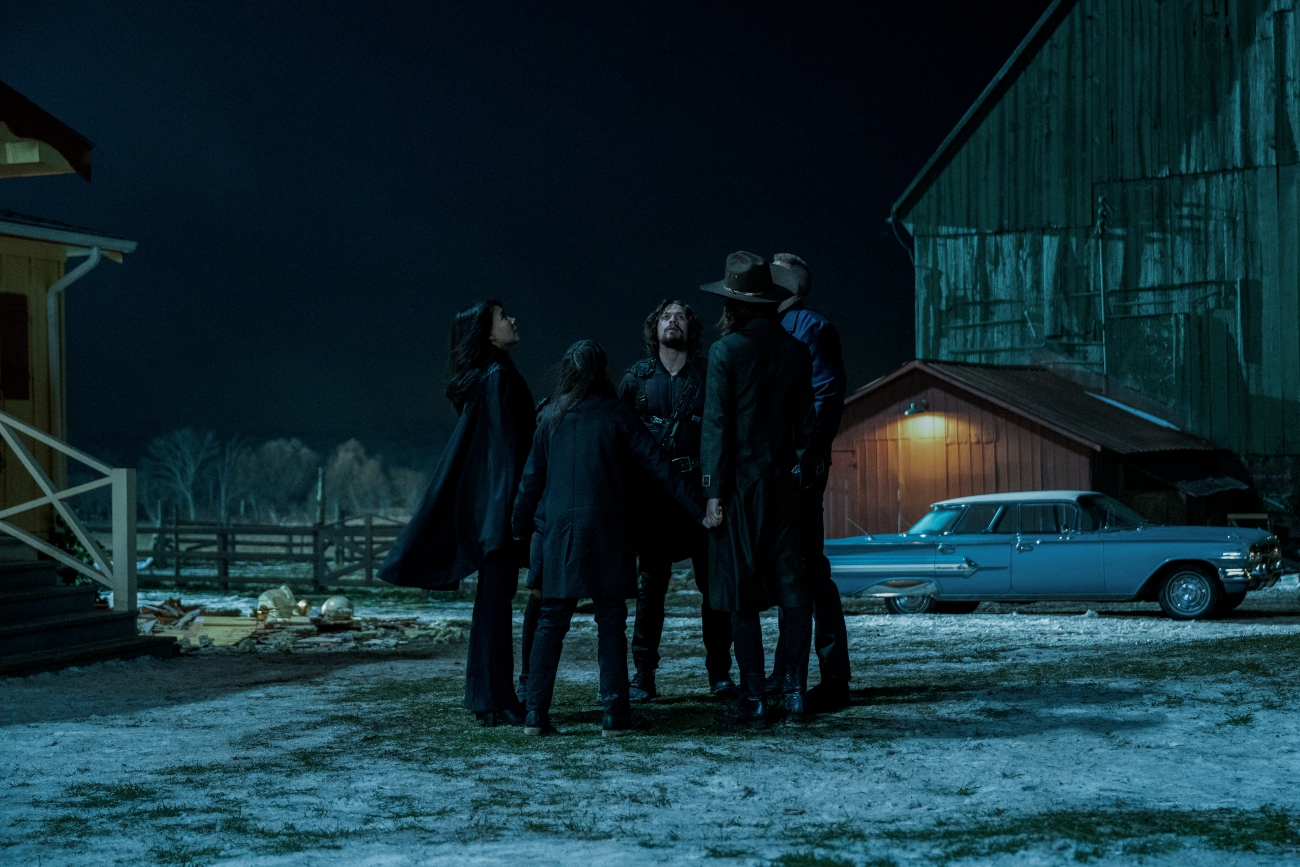‘The Umbrella Academy’ Writers Explain How Time Travel Works in the Show vs. ‘Back to the Future’
Fans of The Umbrella Academy were taken back to 1960s Dallas along with the Hargreeves gang in season 2. Number Five helped avert two apocalypses this season — the one in the opening scene and the main plot — but the siblings jumped into a different timeline at the end.
Clearly, questions are bubbling up about time travel. It’s a plot device that can get tricky and complicated but if done well, can make for awesome storytelling. Netflix’s Dark is one example.
The Umbrella Academy’s showrunners are aware of the pros and cons of playing around with time and recently discussed their approach for handling it in the show.

Why is the timeline so important in ‘The Umbrella Academy’?
Some fans didn’t care for the repeat apocalypse theme, but the timeline is central to the overarching story in The Umbrella Academy. That goes for the graphic novel and the Netflix TV adaptation.
Showrunner Steve Blackman spoke on the Behind The Scenes: The Umbrella Academy podcast and said the timeline is “preset” and has to exist. The Commission’s duty is to watch, guard, and manage it.
However, one of the challenges for the writing team was to invent the rules of time travel. Blackman admitted there were “endless battles” about it.
Writers studied the ‘Back to the Future’ paradox formula for ‘The Umbrella Academy’
Film fans may recall learning about time travel paradoxes through Marty McFly in Back to the Future. Doc told Marty if he bumped into the other version of himself, he could erase his own existence. The movie also touched on creating new timelines (like 1985A), premature deaths, and messing up the universe.
Blackman said they considered how time travel affected an individual who visited themselves. Could they exist? Would only a solo timeline be altered?
Writer Rob Askins also brought up how they explored time for a historical event: Kennedy’s assassination. They wondered whether they should change time and the outcome.
Askins noted they wanted to examine the Back to the Future rule of “every change in the past is gonna change your future.” Askins observed that time is more complicated than that and added that Marty McFly wouldn’t necessarily disappear from that picture.
He said the team heavily researched their own time paradoxes and decided to discard the classic Back to the Future time tenets.
Paradox psychosis is totally unique to ‘The Umbrella Academy’
Writers for The Umbrella Academy came up with their own special take on time travel rules.
They hashed things out for hours and invented paradox psychosis, a hilarious seven-stage take on what happens if you meet yourself in a timeline. Itching, farting, sweating, and paranoid, Number Five had textbook symptoms of the illness.
Moving forward, Blackman intends to apply the same time travel rules for future installments in the series. He noted they thought things through to create the story and to make it believable for the audience.
“It’s very important that our rules stay firm throughout the series,” he said. “And hopefully for seasons to come, we’ll hold to the same set of rules and not just bend them because it helps us write a story one day.”
Fans can look forward to more time travel woes in the next season of The Umbrella Academy when the Hargreeves learn more about The Sparrow Academy.


